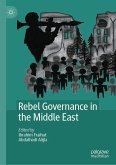Discussing the development of global terrorism between the 9/11 attacks and the launch of the European front against global terror in Spain and Great Britain, the book goes on to analyze why France has not been attacked during the 2000s and why it, in turn, became a primary target of terrorist attacks during the 2010s, with a special emphasis on communication theory and the concept of reciprocity. Studying these attacks on the international level, the book offers insights into violent acts of revenge of the radical home-grown jihadists for the French military interventions in four Middle Eastern and North African (MENA) countries, especially Libya and Syria. It further investigates the following growing radicalization of the Muslim community on the national level as a reason for terrorist attacks. Finally, the book sheds light on the reactions from within the French military to these developments, before closing with a presentation of the new political context after the 2022 presidential and legislative elections.
Based on empirical evidence and a theoretical background this book will appeal to students and scholars of political science and international relations, as well as policy-makers and practitioners interested in a better understanding of terrorism, French politics, and communication theory.
Dieser Download kann aus rechtlichen Gründen nur mit Rechnungsadresse in A, B, BG, CY, CZ, D, DK, EW, E, FIN, F, GR, HR, H, IRL, I, LT, L, LR, M, NL, PL, P, R, S, SLO, SK ausgeliefert werden.









